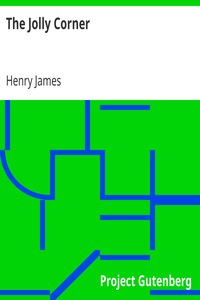| Summary |
"The Jolly Corner" by Henry James is a psychological novella crafted in the early 20th century. The book delves into themes of identity, regret, and self-examination, following the narrative of Spencer Brydon, a man who returns to New York after years of living abroad and confronts his past. Struggling with a duality in his nature and the life he could have led, the story explores the complexities of his character as he grapples with feelings of nostalgia and the haunting presence of his 'alter ego.' In the story, Spencer returns to his childhood home on a street he fondly refers to as "the jolly corner." As he grapples with the changes in the city and within himself, he becomes increasingly obsessed with a mysterious presence in the house—his own doppelgänger. This specter represents the life he might have lived had he chosen to remain in New York, revealing to him the darker aspects of his character. The narrative is rich in introspection, blending Spencer's external experiences with his internal struggles, ultimately leading to a profound revelation about identity, choices, and the ghastly specter of what could have been. The interplay between Spencer's desires and his alternate self culminates in a haunting exploration of self-acceptance, presented through Henry James's intricate prose and psychological depth. (This is an automatically generated summary.)
|

